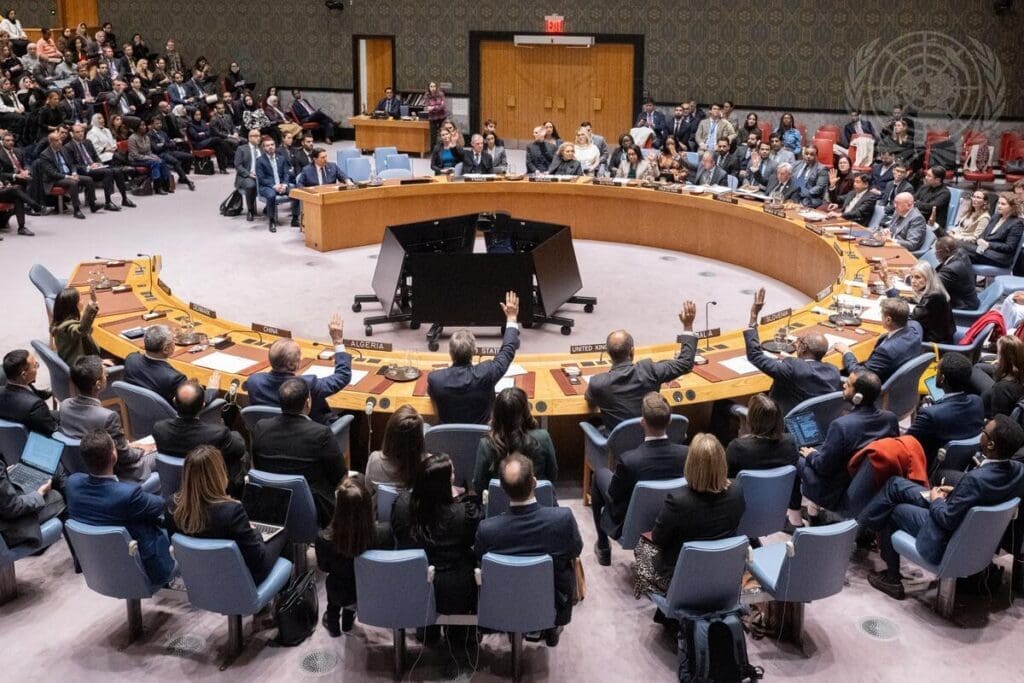- Topics
-
Topics
See our analysis on civil society and how it shapes culture, politics, and policies
Read our insights on the shifting political landscape and what it means for Palestine
Learn more about the policies and practices shaping the Palestinian economy
Strengthen your understanding of the unique conditions for Palestinian refugees across the Middle East
-
- Analysis
-
Analysis
In-depth analysis on existing or potential policies that impact possibilities for Palestinian liberation.
Insights and perspectives on social, political, and economic questions related to Palestine and Palestinians globally.
Concise analysis into a specific policy, its background and implications.
Commentary that brings together insights from multiple analysts.
Compilations of past Al-Shabaka works surrounding a specific theme.
Longer-form, ad hoc projects that seek to confront research questions outside the scope of our regular analysis.
A policy-driven research initiative by Al-Shabaka: The Palestinian Policy Network.
Our monthly webinar series that brings together Palestinian experts.
Featured
Inès Abdel Razek and Munir Nuseibah joined Al-Shabaka for a conversation on the politics behind the UNSC resolution, the implementability of the US-Israeli plan, and the scenarios now being advanced for Gaza and for Palestine more broadly.
 European empires used Christian missions to legitimize conquest in Africa and advance imperial interests, laying the groundwork for a political form of Christian Zionism. British evangelicals were central in transforming Christian Zionism from a theological belief into an imperial strategy by promoting Jewish resettlement in Palestine as a means of extending British influence. This fusion of religious ideology and imperial ambition endures in contemporary Christian Zionist movements, which frame modern Israel as the fulfillment of biblical prophecy and recast Palestinian presence as an impediment to a divinely ordained order. This policy brief shows how these narratives and their policy effects have taken root in the Global South, including in South Africa. In this context, Israeli efforts increasingly rely on Christian Zionist networks to weaken longstanding solidarity with Palestinians and cultivate support for Israeli occupation.
European empires used Christian missions to legitimize conquest in Africa and advance imperial interests, laying the groundwork for a political form of Christian Zionism. British evangelicals were central in transforming Christian Zionism from a theological belief into an imperial strategy by promoting Jewish resettlement in Palestine as a means of extending British influence. This fusion of religious ideology and imperial ambition endures in contemporary Christian Zionist movements, which frame modern Israel as the fulfillment of biblical prophecy and recast Palestinian presence as an impediment to a divinely ordained order. This policy brief shows how these narratives and their policy effects have taken root in the Global South, including in South Africa. In this context, Israeli efforts increasingly rely on Christian Zionist networks to weaken longstanding solidarity with Palestinians and cultivate support for Israeli occupation. Fathi Nimer· Dec 7, 2025On November 17, 2025, the UN Security Council passed Resolution 2803 endorsing US President Donald Trump’s twenty-point plan for Gaza. The vote, pushed through after weeks of US pressure, establishes two supposedly “transitional” bodies to take control of Gaza: a Board of Peace tasked with overseeing aid delivery, reconstruction, and day-to-day administration, and an International Stabilization Force to take over security and disarm Hamas. Notably, the resolution does not refer to the genocide of the past two years, nor does it address accountability for it. Instead, this policy memo shows how the resolution repackages colonial control over the Palestinian people in Gaza, rewards the US—a co-perpetrator of genocide—with control over Gaza and its potentially lucrative reconstruction process, while simultaneously relieving the Israeli regime of all of its responsibilities as an illegally occupying power. Rather than advancing justice, the UN has once again undermined its own legal principles under US pressure.
Fathi Nimer· Dec 7, 2025On November 17, 2025, the UN Security Council passed Resolution 2803 endorsing US President Donald Trump’s twenty-point plan for Gaza. The vote, pushed through after weeks of US pressure, establishes two supposedly “transitional” bodies to take control of Gaza: a Board of Peace tasked with overseeing aid delivery, reconstruction, and day-to-day administration, and an International Stabilization Force to take over security and disarm Hamas. Notably, the resolution does not refer to the genocide of the past two years, nor does it address accountability for it. Instead, this policy memo shows how the resolution repackages colonial control over the Palestinian people in Gaza, rewards the US—a co-perpetrator of genocide—with control over Gaza and its potentially lucrative reconstruction process, while simultaneously relieving the Israeli regime of all of its responsibilities as an illegally occupying power. Rather than advancing justice, the UN has once again undermined its own legal principles under US pressure. Yara Hawari· Nov 20, 2025
Yara Hawari· Nov 20, 2025
-
- Resources
- Media & Outreach
- The Network


